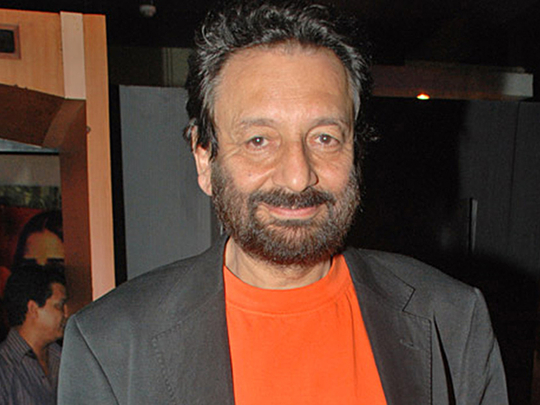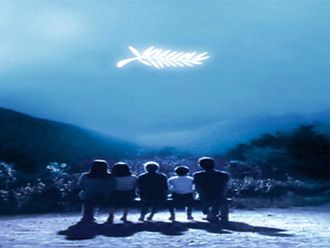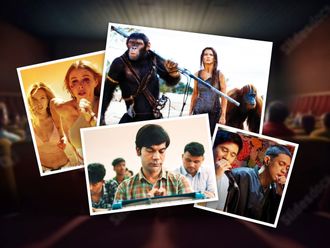
He gave Indian cinema gems like Masoom, Mr India and Bandit Queen, before setting out to chase his dreams and desires in the international film world. Now pining to make a movie in his home country, Oscar-nominated filmmaker Shekhar Kapur says his “big dream” in life is to make a movie series on the Hindu deity, Krishna.
On a break from shooting of a Bruce Lee biopic that he’s helming, Kapur reluctantly spilt the beans about his next Indian project.
“I definitely want to make an Indian film, but I don’t want to talk about it too much,” he said initially.
What’s the subject? “Well, it’s bigger than a subject... It will consume me for the rest of my life,” he said.
At the end of the tete-a-tete that discussed his Bruce Lee film Little Dragon, his TV series Will on William Shakespeare, the changing economics of the film business and Indian showbiz, Kapur finally opens up.
“It’s Krishna. It’s my big dream to make a series of films on the life of Krishna. In today’s context, the story of Krishna is really very important,” the 71-year-old revealed in the chat ahead of the Hindu festival of Krishna Janmashtami, which celebrates the birth of Krishna.
“Krishna is a lover, he is a warrior, he’s eternal... Imagine to be able to tell the teachings... To put all of that together... That moment when Krishna is revealing his truth out to Arjun [Hindu mythological character] on the battlefield of Kurukshetra when Arjun is unwilling to let go of the bow and arrow. To be able to put that on screen will be incredible,” he said.
The last time we heard, Kapur had to scrap his plans to make his ambitious movie Paani — on water scarcity — in India. He was to make it under the Yash Raj Films banner with actor Sushant Singh Rajput, but the project didn’t materialise. There has been talk that he will now make the film in Hollywood.
“It’s happening... The project has not fallen through. It just didn’t get made with YRF for so many reasons... But the script is there, and the topic is so relevant. It has to get made,” said Kapur, known internationally for movies like Elizabeth, The Four Feathers and Elizabeth: The Golden Age.
Elizabeth, a biographical film on Queen Elizabeth I of England’s life, won the prestigious BAFTA Award, leading the western world to take Kapur’s vision as a filmmaker more seriously.
Reflecting upon his shift to international cinema, Kapur said: “I just wanted to tell different stories. Now it’s changing in Indian cinema. But I remember when I went, everybody (here) was trying to tell those few limited stories that they could raise money for. I remember the money for Bandit Queen didn’t come from India. So I went out.
“It gave me the opportunity to tell different stories. That wasn’t possible here, so I left. But I’ll come back.”
He hopes the Indian film industry accepts the globally changing economics of movie business.
“Some years ago, I started an internet company called Qyuki based on the absolute certainty that the business is going to change. And the business has changed the world over. It’s all going to go digital. Theatre business is going to be a very special segment,” he said, pointing out how online platforms like Amazon and Netflix are changing the game.
“And we [in India] have a very interesting business plan — we have only about 9,000 or 11,000 screens in India. How long can you go on making films for those screens in [majorly] four languages? How can you do that? It’s a wrong business plan.
“But, if you look at smartphones, there are about 800 million.... So which platforms are you going to make films for,” he questioned, adding that eventually, moviemaking is all about storytelling.
Kapur stressed on the importance of making content “for the largest audience that you can manage to get”.
“The business plan has to go that way. The business and economics are changing, and people need to get a little more aware of it. People keep talking about the great rise of Indian cinema. But actually, the great rise of Indian cinema will happen now that we understand that it’s not just the theatricals,” he said.












